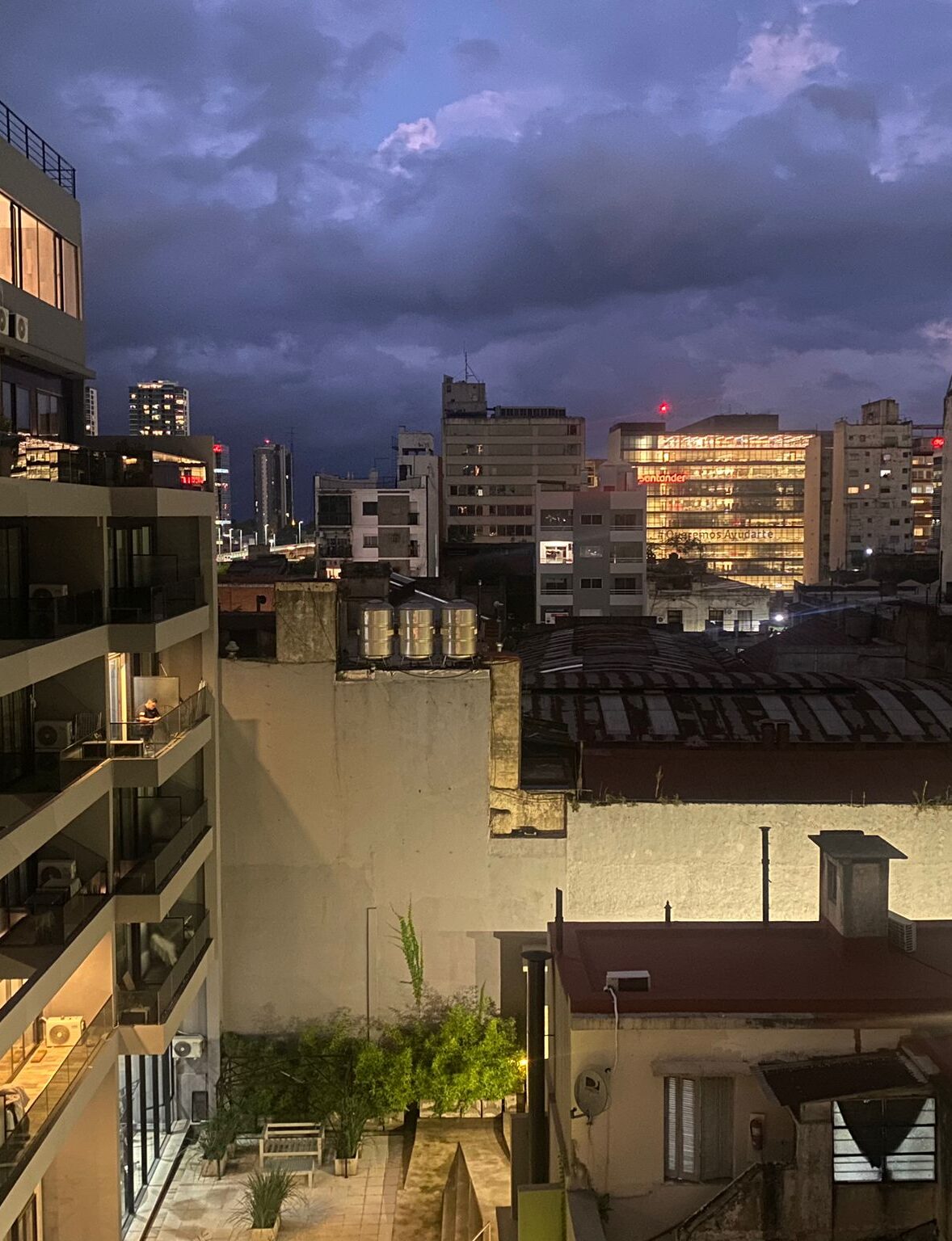By ROLF YNGVE
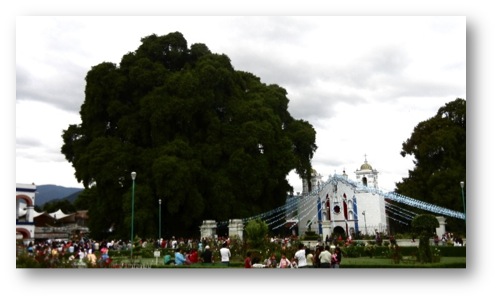
People would tell us to go see the big tree, and finally we flagged ourselves into one of the cheap cabs that go between Santa Maria del Tule and Oaxaca de Juarez on a set route. It was getting dark early under an overcast sky, the remains from tropical storm Ernesto, who had petered out after making some news in the Yucatan.
We found the big tree, a knob made for the grip of some great giant who could use it to lift the entire town – the entire state – out of the Mexican ground. It seemed to squat between the mayoral offices and the church. All the nearby buildings clung to earth like the homes of dwarves.
From under this tree, the women and girls of the town emerged from the church dressed in old, bright clothing. They carried thick-scented lilies, dyed roses, and incensed statues of the Virgin as they processed out to the music of a band set up beneath the arches of the public building – drums and trumpets, fiddles and guitars. A Feria. We’d come for the tree and found a festival. “The Assumption,” the old women told my wife, Sharon. “It is the Assumption of the Virgin Mary. We celebrate this for three days, at least. We always have.”
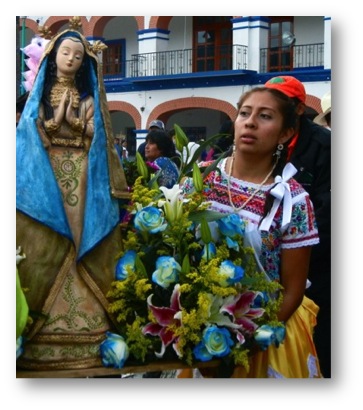
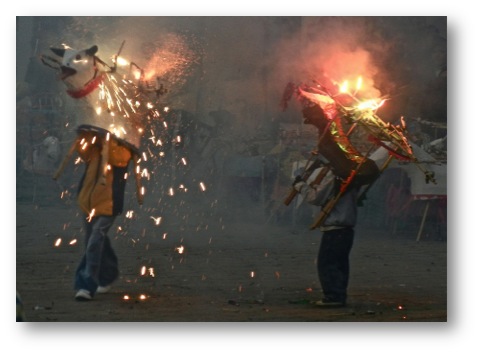
The people from the church formed a semi-circle on the flat dirt of the zócalo. Men came out with bulls made of straw and sticks. Boys were coaxed to put the bulls up over their heads as the men lit fuses and the basketworks started to howl and spew fireworks. The band squalled two-beat dance music without a breath. The boys strutted inside the semi-circle, lowered their horns toward each other, dipped the roman candles and spinners toward the crowd until it began to grow dark.
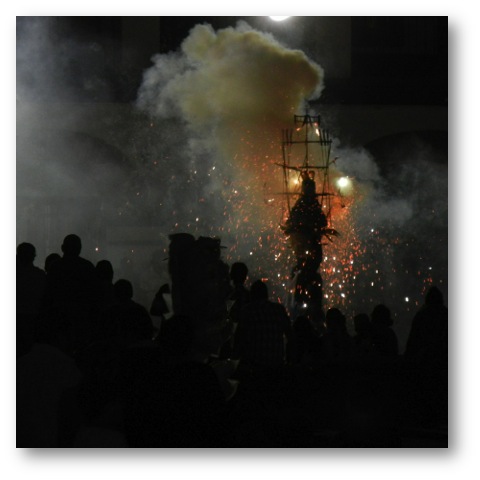
The last light got caught on the western mountaintops. The boys finished pretending to be bulls, and the men brought out bigger straw figures mounted on upside down baskets. These were hoisted up to let a girl take the whole thing up onto her head and become twice as tall. A giant. The statues were loaded with fireworks and as the band played, the girls danced and bowed to the Virgin under the screamers and skyrockets spitting and whirling aloft. Sometimes a rocket arced down and burst into earth and we all ran. Sharon and I were the only strangers. Everyone was friendly. There were spirits everywhere.
My mother once sent me to live in Mexico. Hers was a generation that thought men belonged in a culture of daring, and she believed it was her duty to raise my brothers and me in the shadows of her Viking ancestors and the boys she’d known who’d never returned from war. In Santa Maria del Tule, I felt her there all the time, joined with all the spirits in the smoke and fire, the lights, the music that did not need to pause. A Feria. Great sparkling bangs and blasts, sometimes into the crowd, that delicious taste of danger, the eye-watering risk of real life when the bulls run loose. I felt her there, wishing me well as we watched all the spirits of that town gather under the big tree to dance and dance with all those who could feel them near.
Rolf Albert Yngve’s writing has appeared or is forthcoming in Eclipse, Glimmer Train, Chattahoochee Review, the War Literature and the Arts Journal and The Indiana Review, where a story won the 2009 Indiana Fiction Prize.
All photos by Rolfe Yngve.



